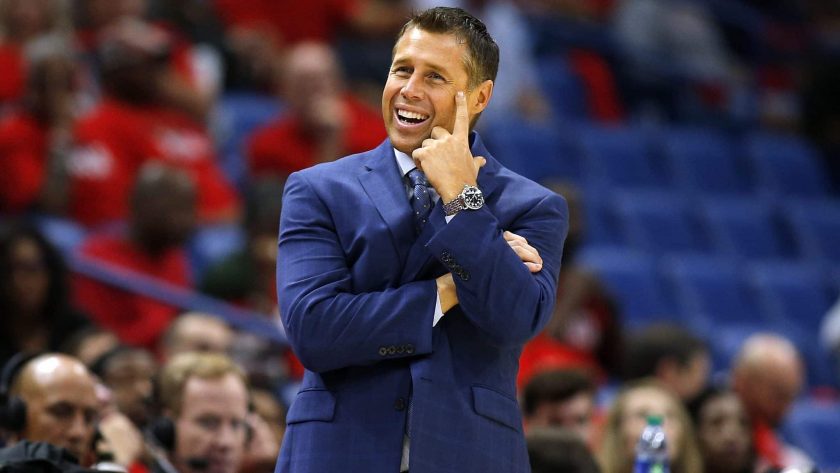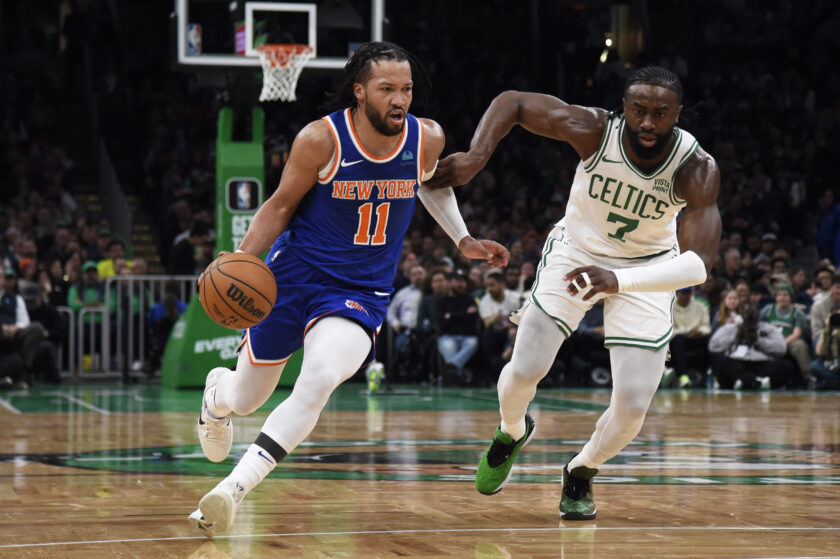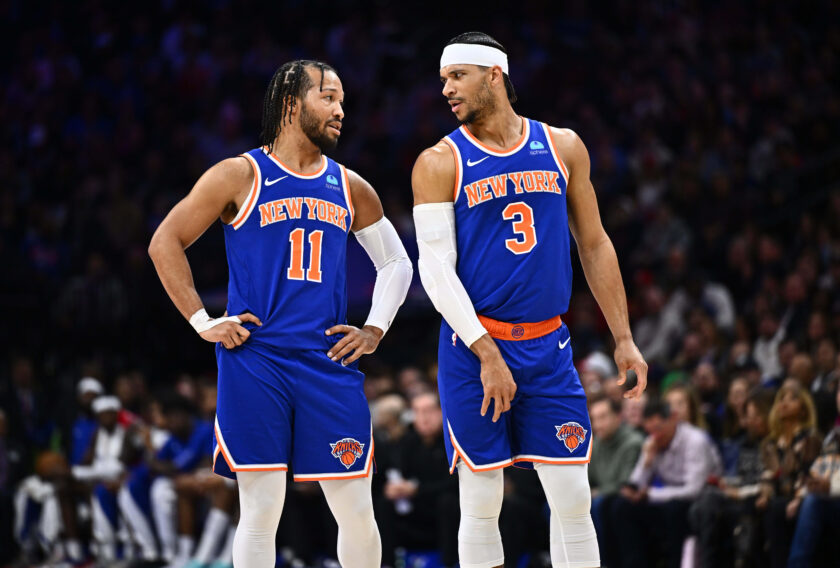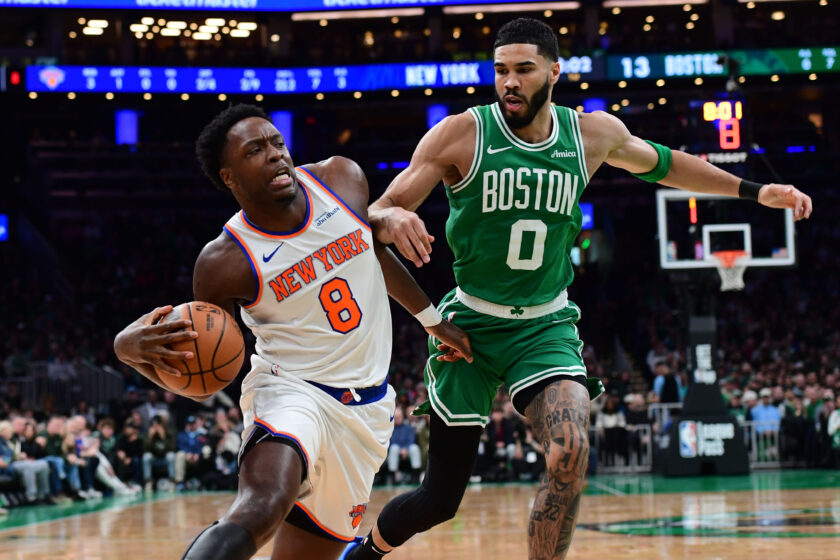Evaluating Dave Joerger’s fit as head coach for the New York Knicks

Dave Joerger has had stops in Memphis and Sacramento. Could the New York Knicks be his next head coaching destination?
[sc name=”geoffrey-campbell-banner” ]Forty-six-year-old Dave Joerger has a last name that would make any college kid smirk, but his 12 years of coaching experience might pique the New York Knicks’ interest this summer.
Prior to his NBA employment, Joerger won three championships with the Dakota Wizards and another championship with the Sioux Falls Skyforce in both the CBA (Continental Basketball Association) and the NBA’s D-League.
During his tenure, a total of 18 of his players were called up to the NBA. Knicks fans can only hope that a coach with Joerger’s pedigree in the developmental ranks might bring the same magic to the NBA ala Nick Nurse and the Toronto Raptors. Nurse had 23 player call-ups during his time in the D League.
The Memphis Grizzlies took notice, hiring Joerger as an assistant coach for the 2007-08 season. They eventually promoted him to head coach after the 2012-13 campaign. Joerger posted a 147-99 win-loss record with the Grizzlies. Nonetheless, they let him go after a sub-par third season due to issues with the front office.
In Sacramento, Joerger’s time with the Kings wasn’t exactly a rinse, wash, and repeat of his experience in Memphis. But, there were similarities. Joerger received criticism for not playing some of the younger guys. He eventually ran into issues with the front office once again, finishing his tenure with a 98-148 win-loss record.
Putting aside Joerger’s experience in the Western Conference, he additionally has ties with people who know the Knicks organization. Joerger’s agent, Warren LeGarie, was also Mike D’Antoni’s agent when he was coaching in the big apple.
And while LeGarie can probably speak to the dysfunction at 4 Pennsylvania Plaza, he can also speak to his client’s increase in wallet size after D’Antoni took the job.
Overall, Joerger is generally regarded as a sharp basketball mind, but questions remain regarding his rotations and player management. Let’s take a look at the positives and negatives of a Joerger-coached team.
Positives
Joerger’s main strength is considered to be his defense. Granted, with the Grizzlies, he stepped into a veteran-laden team. But, he still managed to improve the team’s defensive rating from eighth to second in the league in just his second year as head coach.
Perhaps maybe even more impressive was the fact that Joerger helped lead the Grizzlies to a top 20 defensive rating in the 2015-16 despite major injuries to players like Marc Gasol and Mike Conley. Reportedly, the Grizzlies had to dress a then-league-record 28 players due to injuries.
That year, the Grizzlies finished two games over .500 but were swept by the San Antonio Spurs in the first round.
Moving onto the Kings, Joerger’s ability to adjust the style of play to his roster, especially during his third season, has to be viewed as a strength.
During Joerger’s first two years in Sacramento, the organization traded away franchise center DeMarcus Cousins and fast-tracked their way to a rebuild halfway through the 2016-17 season.
After a 27-win 2017-18 campaign in which Sacramento was at the bottom of the league in numerous statistical categories, Joerger and the Kings made a positive turnaround.
Realizing he had a roster best-suited for a run-and-gun style of play, Joerger relaxed the reins. He thus gave De’Aaron Fox the green light to run wild. As a result, the Kings improved to the top 20 in the league in both three-point attempts and free-throw attempts for the 2018-19 season. They additionally shot up to third in the league in pace.
Speaking of Fox, Knicks fans clamoring for a coach with at least some decent recent history in regards to player development should look at Joerger’s record with De’Aaron and Buddy Hield.
Fox had played no less than 25 minutes per game and his points per game, rebounds per game, and field goal percentage had all increased during his three years in the league. Hield became a 40% marksman from three and increased his points per game total by nearly seven during Joerger’s first season.
Negatives
Despite Joerger’s early success with the Grizzlies and improvement later in his Kings tenure, issues with the front office led to his demise with both organizations.
Prior to his exit in Memphis, ESPN’s Adrian Wojnarowski reported that Joerger had requested permission to speak with other NBA teams regarding head coaching vacancies. Zach Lowe of ESPN also tweeted that Joerger’s “flirtation” with the Minnesota Timberwolves had left some rifts between him and the Grizzlies brass.
On some level, this is a red flag. You want your under-contract employees to show loyalty. Joerger is a Minnesota native, so you can understand the desire to return home. But regardless, the Grizzlies’ frustration is also understandable.
In Sacramento, Joerger’s issues with the front office were much more basketball-related. According to Chris Haynes of Yahoo! Sports, the franchise (stop me if you’ve heard this before) was frustrated with Joerger’s minutes-distribution, and specifically, with the lack of playing time for top draft pick Marvin Bagley.
Haynes explains, “Joerger, generally regarded as one of the best X’s and O’s coaches in the league, has favored playing veteran players over developing youth, especially in crunch time.”
The article cited Joerger as favoring players like Nemanja Bjelica and even former Knick Troy Williams instead of Bagley in some situations. Knicks fans know all too well about the moans and groans that come from coaches crafting lineups to save their job whilst sacrificing the development of their young players.
Conclusion
Back in 2014, one general manager told ESPN’s Kevin Arnovitz, “He loves the craft,…Look what he’s done with [the Memphis] defense. He’s got Thibodeau’s thing for defense, but he’s a lot more likable than Thibs.”
Arnovitz’s description of Joerger would likely appeal to the analytics’ nerd in any of us. Joerger reportedly had an acute awareness for which NBA guards ordered and rejected screens. He thus knew how to teach his players how to use this information.
However you slice it, the next coach of the Knicks must have a feel for the modern game. Too often, fans have become frustrated by researching different lineups and players with a seemingly obvious positive impact on the game. Yet, those lineups and players are often not used.
Of course, there’s more to the game than math and the available statistical information on websites like NBA.com, Basketball-Reference, and Cleaning the Glass. Nonetheless, it would be nice for the process, at least on the surface, to look like it makes sense.
In the end, I believe Joerger would be a satisfactory selection as head coach for the Knicks. His weaknesses are not that glaring and his reputation around the league as a defensive-minded head coach with a strong appreciation for analytics may be the exact type of fresh air that Madison Square Garden needs.





